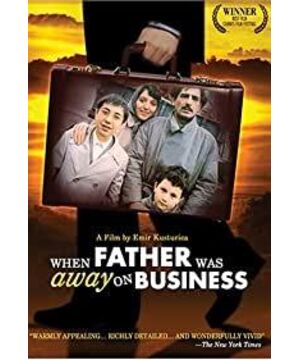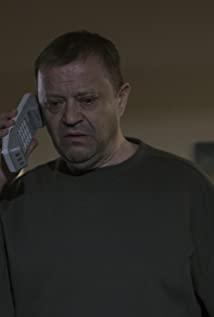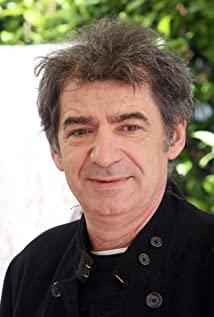"The Yugoslavian football team defeated the Soviet team in the Olympics." What does this seemingly sudden ending of the film mean? Those who understand the history of the relationship between Yugoslavia and the Soviet Union after World War II may not be difficult to answer.
Since 1948, relations between Yugoslavia headed by Tito and the Soviet Union headed by Stalin broke down. The Yugoslavs, who lived in the Soviet political model after World War II, did not know where to go. By the early 1950s, this kind of political struggle became very fierce, and the thinking of ordinary people in Yugoslavia became more chaotic. Tito painstakingly consolidated the political power, in order to achieve complete liberation from Stalin's control and complete independence of the political power, he did not hesitate to adopt a high-pressure policy against the people. Ordinary people living in the vortex of intense conflicts and struggles can be labelled as "Stalinist tendencies" and sentenced to labor reform if they say anything carelessly. In this chaos, some officials, in order to climb to a high position and strive for their own benefit, are capable of framing others; some officials, in order to satisfy their corrupt and enjoyable desires, persecute the masses with the hat of "Stalinist tendencies". It was a "special period" in Yugoslavia, also known as a period of "political schizophrenia".
Under the background of this era, Misha, who is not loyal to love and can't keep his mouth shut, will inevitably become the target of intensive hunting with a decent appearance and a dark and dirty heart. Because he not only spoke carelessly in front of his lover, but in order to show his love for her, he rashly told her the deep feelings in his heart, which created good material for himself "with Stalinist tendencies."
The political struggle between adults has nothing to do with children. Standing in the position of children, observing the struggle of adults is the most objective, clear and fair. The six-year-old Marek occupies the best position to observe the course of this struggle. It is precisely because of this that he has become the central figure throughout the film. Before the filming started, the director only wanted to make a witty and humorous family drama. As a result, following the "need" to shape Marek's image, he unconsciously filmed a political satire condemning the overwhelming, sinister and treacherous scum of that "special period". The film was filmed four years after Tito's death. The circumstances of the family in the film cannot but arouse the Yugoslavs to calmly reflect on the "special period" they experienced.
A six-year-old child, in the childish period of man, has a pure and pure heart, and has no fixed subjective ideas about human affairs. Intentionally or unconsciously, they are gradually woven into an understanding of the world from the influence of various objective worlds and their own personal feelings. This understanding may affect his life. Although people's knowledge can change with their own growth and changes in the social environment, the knowledge formed during this period, the so-called imprint, is deep and tenacious. The film borrows Marek's perspective to observe Yugoslavia in the "special period", which triggers people to think deeply about human society and the human mind.
People who suffered like Misha were quite common in Yugoslavia at that time. Many people were arrested, sentenced, and sent to political prison camps for unwarranted crimes. According to statistics, there are more than 50,000 people who have been detained in concentration camps or sent to labor camps at peak times. "I went on a business trip" became a lingo for being sent to a labor camp. On the surface, the reason for Misha's "business trip" is not so much political speech as it is because of a jealous woman-his mistress Ankika's revenge against him. Angika asked Misha to divorce his wife and marry her. Misha did not satisfy her, so she informed Ji. Her move was in the arms of Ji-Yu, because Ji-Yu was trying to trap Misha in desperation and get her. However, from a deep point of view, what caused Misha to go on a "business trip" essentially illustrates the problem: In Yugoslavia at the time, a bad woman and a politician full of selfishness colluded with each other, and they could use administrative means. , Put an innocent person to death. It can be seen how terrible the chaos and darkness had reached at that time!
The film narrative method is extremely cinematic, and the expression of the introductory event process is particularly concise. For example, at the beginning, I only used Anjika's words to force Misha to divorce on the train, and then switched to a description of Misha's family. Then Misha met Anjika again during the air show, and then settled down. Kika revealed Misha's criticism of a political cartoon and the content of the cartoon to Ji. Before the audience could blink, Ankika learned that Misha had been sent to a labor camp. The rapid progress of this kind of incident caused the audience to be anxious to understand the content of the story. At the same time, the main character in the play, the six-year-old Marek, was thrown into the confusion and became the focus of the audience's attention.
Then the film uses a lot of space to carefully describe the unfortunate life of the Marek family after Misha went on a business trip. Mother Sonia bears the brunt, she must bear this misfortune silently. She missed her husband day and night and forgave him for the disaster he caused to herself and her family. She wants to use labor to relieve the family's financial difficulties, support the burden of supporting the elderly, and run around to earn the money necessary for the family's subsistence. The two young children also caused her trouble from time to time: Mirza only knew to read, and Marek loved to play football. She was crazy, and once kicked the ball on the cake of someone's wedding banquet. He also has nocturnalism, and he often doesn't know where to swim late at night. Fortunately, Mirza tied a bell on his foot, otherwise it would be really unthinkable. But the director did not blindly push these scenes of life to Senia as troubles, but handled them as humorously as possible. For example, Mirza tied a bell on Malik’s feet, like kicking a ball on a cake at a wedding feast, or like Malik messing up people’s affairs and talking about love, but he himself fell in love with a little girl inexplicably. Formed a comedy effect. And when the brothers took the copper plates they earned from going out to do small jobs to their mother one by one, it brought comfort and joy to the mother, and also brought tears to the audience. This bitter and sweet portrayal of daily life is different from the dark pessimism of the "film noir" of Yugoslav directors Zarimir Zbek, Dushan Markovic and Alexander Petrovich in the 1960s. It made the family's situation full of wit, kindness and sympathy, so it was generally welcomed by Yugoslavs.
When dealing with such a heavy subject and serious subject, the director did not give boring preaching, but adopted a humorous way of expression, which can be felt from the title. The six-year-old Marek felt that his father did not go on a business trip normally. Although he didn't know it, he realized the strangeness of things from his mother's sad face and occasional sighs. I felt the changes in my life while taking care of me. His young mind had to think beyond age. The result of this thinking was reflected in the letter he wrote to his father, "I regret that you have to work'voluntarily' in the mine." Obviously, he is full of trust in Dad, but he can't understand and tell the truth, he has also learned to use lingo, and he has grown up.
"The Yugoslavian football team defeated the Soviet team" is a metaphor for the film director to show Marek's growth, and a symbol of the improvement of the Yugoslav people's political and ideological understanding after meditation on that period of "schizophrenia".
In 1961, the famous Yugoslavian writer Ivo Andrek won the Nobel Prize in Literature, and the people of Yugoslavia once enjoyed a while. For more than 20 years, there were no new and exciting results in Yugoslavian cultural circles. In June 1985, the film won the Palme d'Or at the Cannes International Film Festival, and the people of Yugoslavia once again rejoiced. The main theater in Belgrade, Kozana, had a flood of audiences and had to add the morning show at 10 o'clock in the morning. Director Kusdurica's name has taken the country by storm.
The film was made in 78 days. Actors, photography, and composition were all the elites of Yugoslavia at that time. The former Yugoslavia is a socialist federal republic composed of the six Balkan republics and the two autonomous provinces of Kosovo and Vojvodina in Serbia. It is a multi-ethnic country. The director and screenwriter of the film is a Muslim and a native of the Republic of Bosnia and Herzegovina. The photographer is from the Republic of Slovenia. Actors include Serbs, Croatians, Macedonians, and Hungarians. The entire crew is a multi-ethnic creative collective.
The difficulties encountered during the filming of this film should be expected. The main reason is that the problems involved in the film-Yugoslavia's purge of "Stalinists"-discouraged some producers, and Kusdurica had to ask for help. At the "Forum Film Studio", which has only filmed documentaries. According to Kusdurica, his father was also a national cadre and a member of the Communist Party. When he was a child, like Marek in the play, he had somnambulism. But he denied that the film contained autobiographical elements. To say that his success is not his personal victory, but only the recognition of the far-reaching "New Wave" of Yugoslavia developed in 1977. He also believes that without the influence of the Prague Group, "Dad is on a business trip" would not be filmed. This refers to those Yugoslav directors who studied at the Prague Film Academy in the late 1960s and early 1970s. Sensitivity is combined with the witty and enthusiastic awareness of the Czech directors' social observations.
Following "Dad Going on a Business Trip", Kusdurica launched "The Age of the Cigan" (formerly known as "The Strangler's House") in 1988, which won the Best Director Award at the 1987 Cannes International Film Festival. In 1993, he directed "Arizona Dream", which won a special jury award at the 43rd Berlin International Film Festival. In 1990, the Yugoslav League disintegrated, nationalism was rampant, ethnic conflicts intensified, and civil war broke out. He had to leave his homeland and go to France to shoot a film.
In 1994, Kusturica filmed "Underground" and won the Palme d'Or at the 1995 Cannes International Film Festival. The film is three hours long and depicts the story of a group of resistance fighters who went underground to make weapons in Belgrade at the end of World War II. The war was over, but the leader Marco deceived them, saying that the war was still going on and asked them to continue to produce arms for him to smuggle arms. These people have been working in the ground for 20 years. Kusdurica said he "hopes that "Underground" can help more viewers understand the context of the current conflict in Yugoslavia", "this situation has been going on for thousands of years, and the territory of Yugoslavia is a fragile place."
Kusdurica’s directing techniques are both rigorous and difficult to perceive clearly, between Slavic precision and Mediterranean madness. He said that when he was in Sarajevo, he was in frequent contact with people, had a lot of energy and insatiable curiosity, all of which affected his personal way of filming. The awards of his series of works have made people see that he is a talented middle-aged director recognized in the world of film and has a place in the history of world cinema.
View more about When Father Was Away on Business reviews











